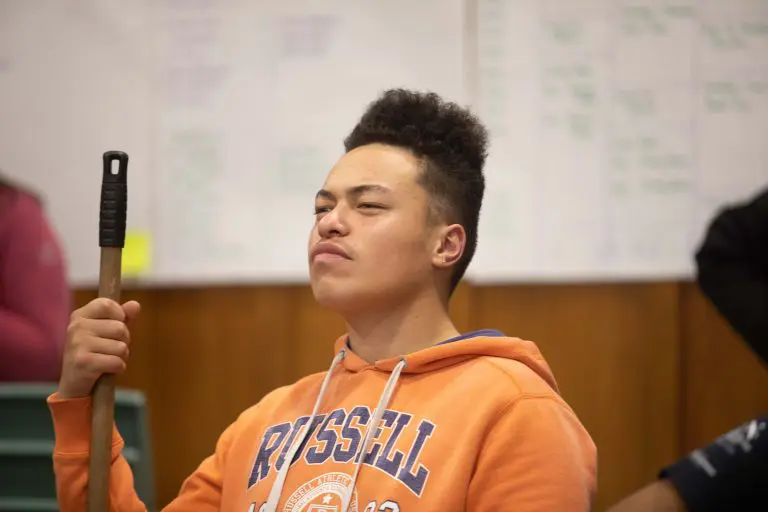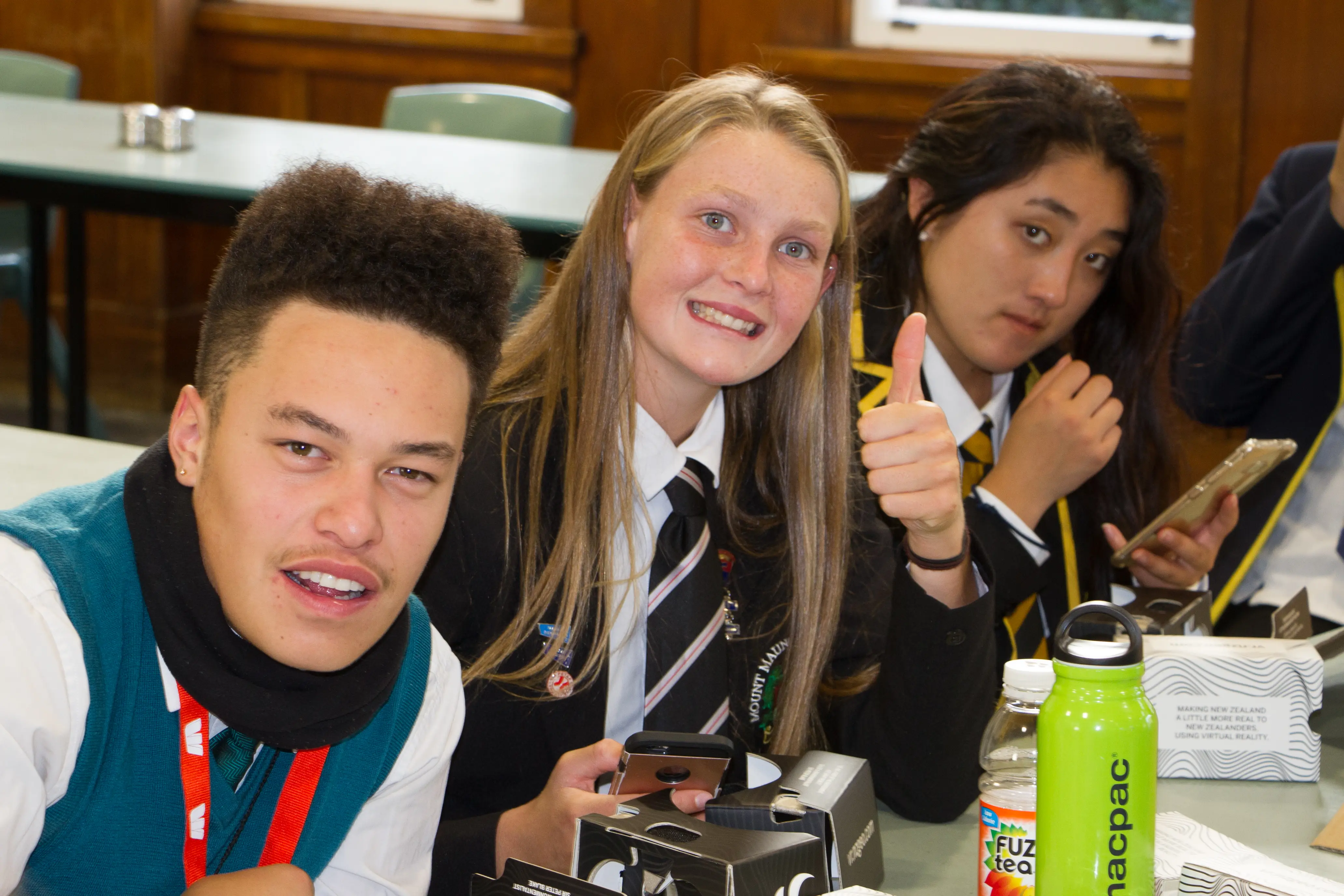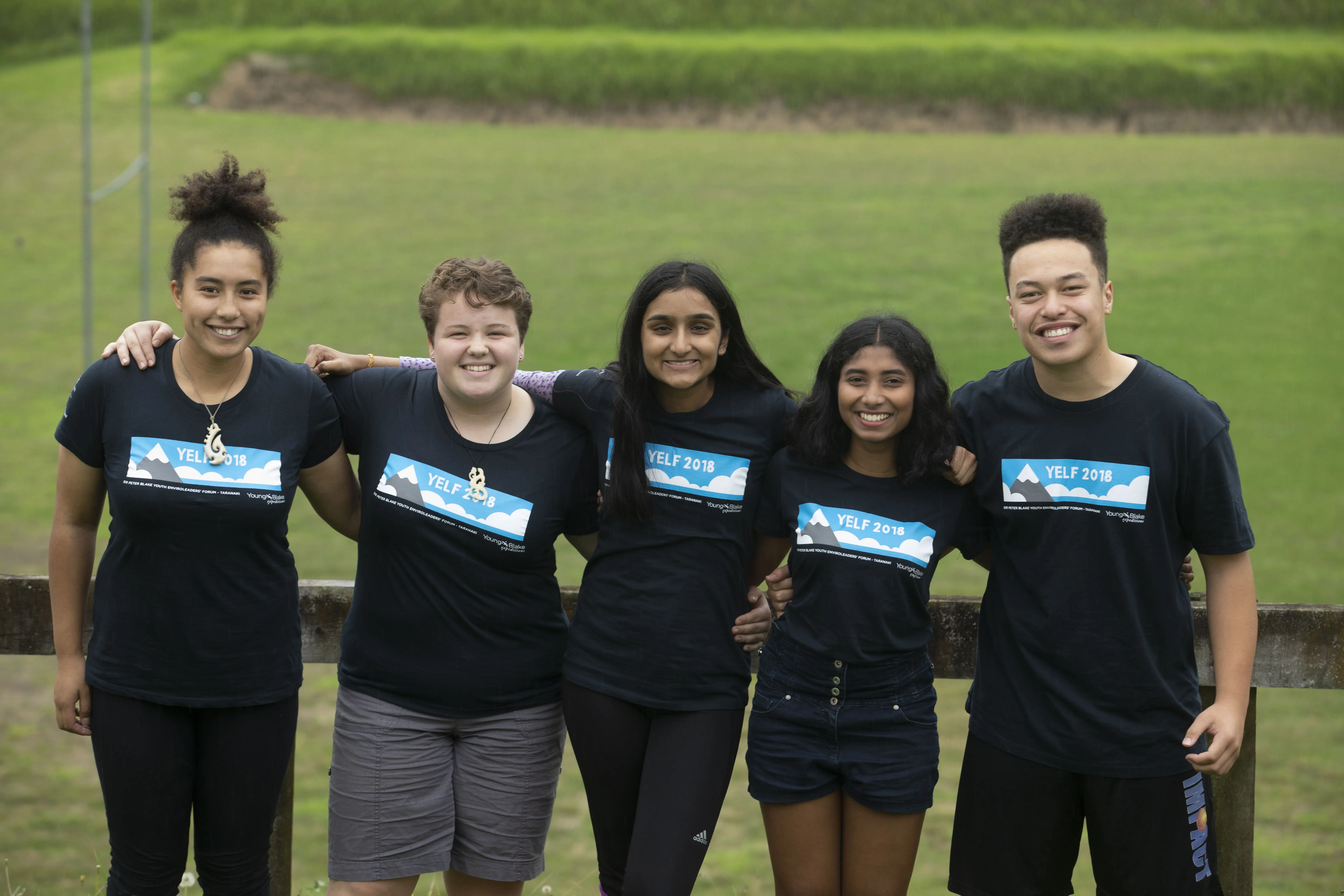Watene Campbell has given a piece of his heart to a little critter on Wellington’s shoreline, while waging war on a less-lovable varmint.
Campbell, a 17-year-old student at Te Kura Kaupapa Māori o Ngā Mokopuna in Wellington, makes time in his frenetic schedule for the smaller creatures, to help save “our taonga species”.
When he’s not studying, paddling waka ama, playing rugby, or voicing his future hopes for young Māori to the Minister of Education, Campbell is striving to make his seaside suburb of Seatoun predator-free.
The impressive young leader, who’s passion for the environment is interwoven with his strong connection to Māoritanga, is playing a part in making the Miramar Peninsula the first totally predator-free area in the capital.
At the same time, he’s trying to help another resident – kororā pākau-tea, the little blue penguin – to thrive.
Campbell made his predator-free pledge at this year’s Youth EnviroLeaders Forum (YELF) in Taranaki, where high school student leaders from throughout the country came together to develop their own strategies to address pressing environmental issues.
The seed was planted, he says, when he attended an environmental group event in Miramar outlining the threats that pests posed to local native flora and fauna. “YELF gave it the nutrients it needed to grow,” he says.
At Te Kura Kaupapa Māori o Ngā Mokopuna – a full-immersion Year 1-13 Māori medium school of just under 100 pupils he’s attended since he was five – Campbell and the other Year 12 students have focused some of their school assignments on the predator-free project. Campbell’s mother, Renee, the science teacher at the school, has helped the four students to prepare and plan.
The group set rat traps around the school grounds and were astonished by what they found.
“In the beginning, we’d monitor the traps daily and there would always be a catch – two or three rats a day,” Campbell says. “It’s been quieter lately – but I assume that’s a good thing.”
He plans to make his school grounds free of rodents, before widening the halo to connecting with other predator-free work being undertaken on the Miramar Peninsula.
Seatoun is more welcoming of another small inhabitant – kororā, the world’s tiniest penguin. The coastline is one of the few places in the country where little blue penguins live so close to an urban environment.
But their numbers are also declining. The “at risk” birds are not only under threat from predators the likes of dogs, rats and ferrets, but they also lack street smarts.
Te Kura Kaupapa Māori o Ngā Mokopuna is right on the beach at Seatoun, and has a school-wide learning theme of ‘kura moana’ – being involved with and connected to the sea.
The school partnered with Papa Taio Earthcare, a nationwide enterprise designed to guide young people in environmental sustainability and ecological restoration projects. Their chosen project is to design and make signs to protect the little blue penguins.
Campbell and his classmates met with Wellington Council to secure funding and are now creating road signs warning motorists of the 25cm tall jaywalkers.
The students have been on night treks along the coastline counting the penguins, and hope their signs will soon help raise the number of birds they spy.
“They make the funniest noise, so it’s easy to know they’re there,” Campbell says. “They have a part of my heart now.”
Campbell’s other school projects have involved local freshwater conservation and a snorkelling programme, with the Mountains to Sea Wellington Conservation Trust, carrying out field studies and cultural mapping of the local marine environment.
“We were snorkelling at the Taputeranga marine reserve, and the water was blue, clear and deep. But elsewhere, there weren’t a lot of fish or seafood around, which kind of had us thinking, ‘What are we doing wrong?’” he says.
“People sometimes think too much about themselves and don’t think ahead. The reason I want to do these things for our environment is not only to revitalise our native birds, sea creatures and plants, but also for the next generations. I want my children to experience the beauty of the sea and forest as I have, and connect to our Maori gods the way I have,” he says.
Campbell has “loved the environment” since long before he can remember. “Being Māori, at a young age we’re taught that Tangaroa is the god of the sea, and so on. We build a connection with our Māori gods, and that stays true within me and that’s how I base my passion for the environment,” he says. “Everything I do, I try to incorporate my Māori side.”
He considers himself fortunate to be one of 12 students from around New Zealand on the Minister of Education’s Youth Advisory Group. Every term, they meet with
Education Minister, Chris Hipkins: “to bring a youth voice to the discussion on education and how we think it should go from here,” Campbell explains.
“I guess I’m representing a voice for Māori in the future. This world is based around English learning but I want a world where Māori can succeed as much as anyone.”
His experience at the YELF week – run by the Sir Peter Blake Trust in partnership with the Ministry for the Environment – was critical to his own future, he says. “I grew so much confidence – not only in myself, but now I feel confident that I’m not alone. I have my 55 peers who were with me at YELF, who are just as passionate about our environment as I am, and who will help me to change the world for the better.”
As to his own future, he’s yet to decide what career path to follow. “Yesterday I wanted to be a lawyer, today I want to be a dentist, and tomorrow, who knows?” he laughs.
But one thing he has his sights set on is competing with the world’s best waka ama paddlers. He may be a small fish, but he’s determined to make a momentous splash in a big pond.




